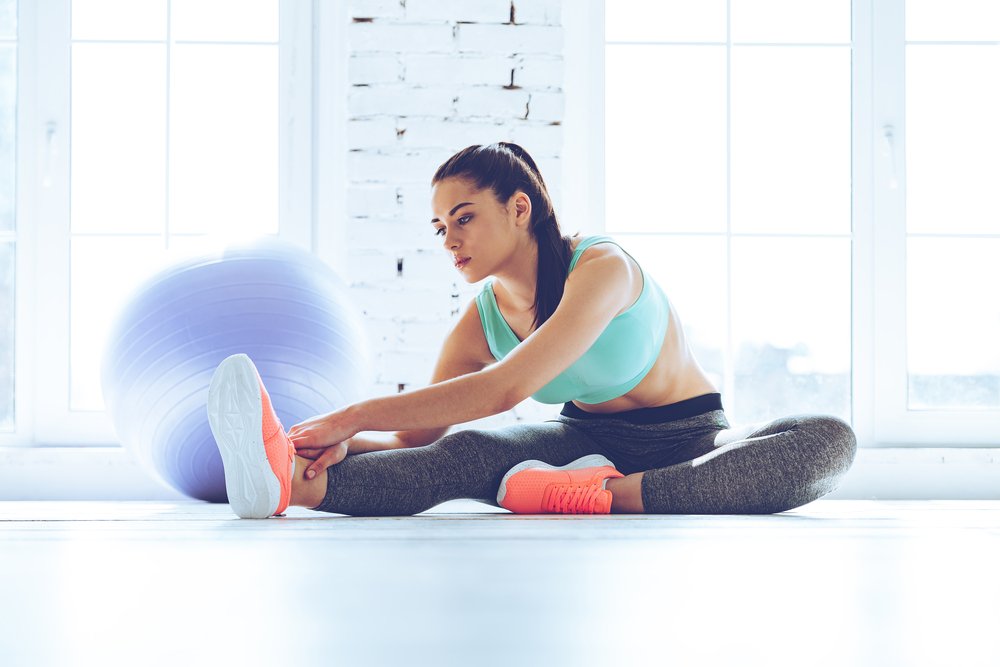
Whether to work out while unwell concerns many exercisers. Although more research is needed, the general guideline is that if you have symptoms of a common cold, with no fever and all symptoms above the neck, moderate exercise such as walking should be okay. However, if your symptoms include fever, extreme tiredness, muscle aches or swollen lymph glands you should refrain from exercise until you get better. When you do start exercising again, progress slowly and gently. Even if you do have to take a week or two off because you’re feeling under the weather, it really won’t make that much difference to your overall fitness level if you’re consistent with your program the rest of the time.
Your answer to should you go ahead and exercise — or roll over and get some extra sleep? depends on the fever test and the neck check, says the American College of Sports Medicine (ACSM). The cutoff point, many doctors say, is 100.5 degrees. Listen to your body and take it easy if your body temperature is at or above that mark. The danger of working out with a fever, the ACSM says, is that you run the risk of kidney ailments, heatstroke and fluid balance problems as your temperature climbs even higher.
If your temperature is normal, but you still feel under the weather, take the “neck check” to see whether you should exercise. If your symptoms are above your neck — sneezing, stuffy nose and watery eyes — by all means go ahead with your regular workout, the ACSM says. But if your symptoms are below the neck — nausea, achy muscles and coughing, all indications of the flu — you’re better off laying low for a couple of days. Your immune system is compromised with the flu, and if you work out, you won’t recover as well because a lot of the energy in your body is going to exercise, not recovery.

If you get sick often, why? Is there something you can do about it?
Once you’ve been exposed to a virus, the likelihood of your getting sick depends on a number of factors, including advancing age, whether you smoke, high levels of stress, poornutrition and lack of sleep. Exercisers frequently report that they experience less sickness than their sedentary peers. (The American council on Exercise reports that 61 percent of 700 recreational runners studied had fewer colds after they began running, while only four percent reported the frequency had increased.) During moderate exercise, various immune cells circulate through the body more quickly and are better able to kill bacteria and viruses. So every time you go for a brisk walk your immune system receives a boost that could increase your chances of fighting off respiratory infections.
Exercise won’t guarantee that you won’t get sick. In fact, sometimes too much exercise can put you at greater risk of developing a virus. A high percentage of marathoners and triathletes get sick immediately after a big event. The theory is that too much exercise may suppress the immune system and make you more susceptible to catching viruses.
Tips to avoid sickness
Here are some general tips to reduce your odds of getting sick.

Eat well: The immune system depends on manyvitamins, minerals and sufficient caloric intakefor optimal functioning. Make sure you consume plenty of fruits, vegetables and grain products and drink a minimum of eight glasses of water per day.
Get lots of sleep: The American council on Exercise reports that major sleep disruption (three hours less than normal) has been linked to immune system suppression.
Exercise: Include moderate levels of exercise in your weekly schedule to ensure your immune system receives a regular boost.
Avoid overtraining: Space vigorous workouts and race events as far apart as possible. Allow for adequate recovery periods and rest days.
Just because you miss a workout or two when you’re sick doesn’t mean your fitness level will suffer. Once you pass the neck check and the fever test, you can be active again — but listen to your body. Getting back to your routine will be easier than you think.